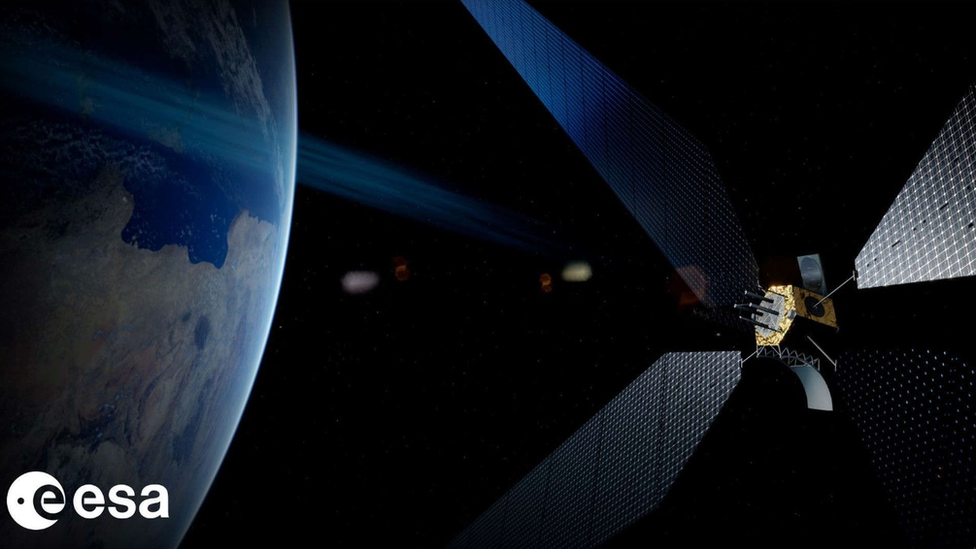Could we get energy from solar power in space?
- Published
- comments

The European Space Agency wants to develop a space-based solar power program to increase energy independence and fight climate change.
The ESA aims to create clean energy that's powered in space and will ask for funding from its members, including the UK, in a big meeting later this year.
The Solaris program would explore the potential of space-based solar power as a climate friendly, affordable way to power Earth.
Development of a solar power system could be up and running as early as 2025.
How would space-based solar panels work?
Many countries are turning to solar power as a renewable source of energy, but as the sun doesn't shine all the time there are limits to the amount of energy they can produce
In order to cut emissions and tackle climate change many countries like the UK are switching to renewable sources of energy, like wind and solar.
Wind and solar farms only produce energy when the wind is blowing or the sun is shining - but we need electricity every day and all of the time.
One of the solutions to this is space-based solar power, which is one of the technologies included in the UK government's plans to achieve net zero by the year 2050.
Unlike ground-based panels, space-based solar panels face the sun all the time so they can capture solar energy 24 hours a day.
Space-based solar power stations would be able to collect energy from the Sun all of the time
The system involves a spacecraft or space station equipped with a collection of solar panels which is placed in geostationary orbit, a circular orbit of the Earth about 22,000 miles high.
The energy collected from the sun would then be beamed to Earth where it is converted into electricity.
Without the Earth's atmosphere getting in the way space-based power plants could provide cleaner, more efficient energy than the plants that already exist on Earth.
The ESA also says the SBSPs are also part of the solution to the ongoing energy crisis.
A statement from the ESA said: "Space-based solar power would be an important step towards carbon neutrality and energy independence for Europe."
But not everyone thinks a space-based solar power station is a good idea.
One of the main problems is the huge costs of launching a satellite into space. Then there would be further costs of maintenance.
Another concern is the problem of space debris which is a huge hazard for large objects and the solar panels could easily be damaged.
These are all things that are expected to be looked at by the European Space Agency when they meet later this year to discuss the plans.
- Published21 June 2021
- Published27 November 2020
